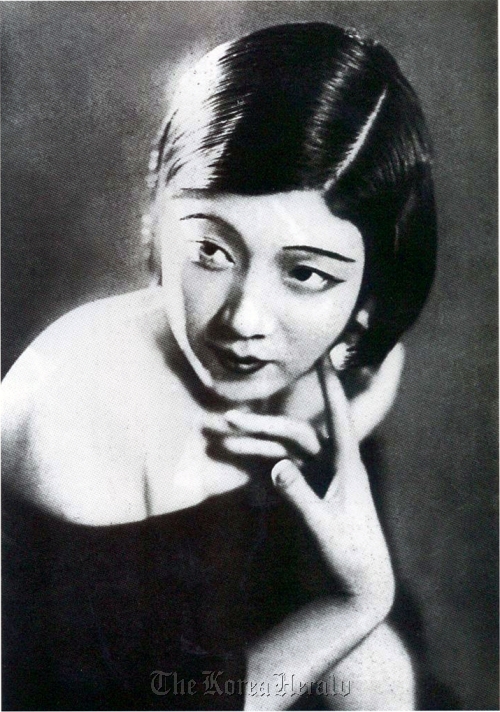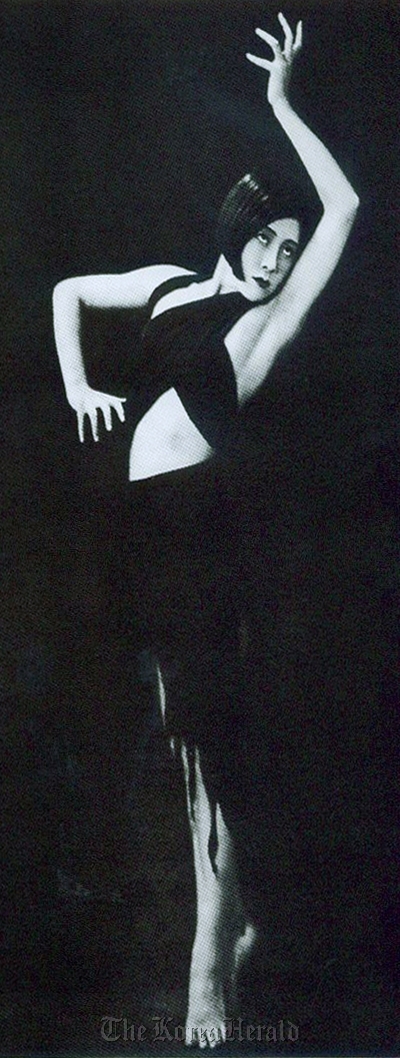 |
Choi Seung-hee |
She was beautiful and talented, but unfortunate. Choi Seung-hee, born in South Korea in 1911, was a leading dancer who introduced modern dance to the nation at a time when modern society was starting to develop. She performed overseas in the late 1930s and was lauded as one of the best dancers in Asia along with India’s Uday Shankar.
Despite her talent and pioneering achievements, Choi did not receive much of the spotlight here because she defected to North Korea in 1946 with her husband An Mak who was an active supporter of the Workers’ Party of Korea.
Under full support from then-North Korean leader Kim Il-sung, she established the National Institute of Dance and played a big role in laying the foundation of the North Korean style of dance.
But luck did not stay on her side for long. Her husband was purged in the late 1950s and soon, so was Choi. She was kicked out of the dance scene in 1969. It was only in 2003 that North Korea made an official announcement that Choi had died in 1969.
South Koreans, however, are shedding new light on the dancer to commemorate the 100th anniversary of her birth which falls on Nov. 24. Various forums, symposiums and events are being held throughout Seoul.
Commission for the Centennial Anniversary of Choi Seung-hee’s Birth and Yeonnakjae, a dance library situated in Dongsung-dong, central Seoul, are hosting events and symposiums until the end of the year.
One of them is an international symposium which will be held on Dec. 5 at the National Palace Museum of Korea in central Seoul. Choi’s former students, including Kim Ye-hwa, former professor at Minzu University of China, and Baik Hong-cheon, head of Choi Seung-hee Dance Research Center in Japan, will participate in the event to reminisce about their teacher and discuss value of Choi’s works.
 |
Choi Seung-hee. (The Korean Association of Dance Critics and Researchers) |
“Choi Seung-hee Dance Method Workshop” will be held on Dec. 6 at Korea National University of Art’s Korean Traditional Arts Center.
Throughout December, Yeonnakjae will screen documentaries about Choi and her performances including “The Story of Sadoseong,” a dance performance based in Sadoseong, an old castle which is assumed to have been situated in North Gyeongsang Province. Written and choreographed by Choi, it was premiered in 1954 in North Korea and was later turned into a movie in 1956, starring Choi as the heroine.
“‘The Story of Sadoseong’ was screened in public only once since it was discovered in Moscow in 1998. It is a symbolic piece that shows Choi’s artistic world after her defection,” said Seong Gi-suk, head of Yeonnakjae.
The Korean Association of Dance Critics and Researchers will hold a forum on Friday at Artist House in Dongsung-dong, central Seoul, in which scholars from Korea, China, Japan and U.S. will participate. Judy Van Zile, professor of dance at the University of Hawaii at Manoa who has been studying Choi Seung-hee, will lead the discussion.
Korean-Japanese Ha Jeong-ung, a collector of Choi-related documents, will give a lecture at the forum and Oh Yul-ja Baiknam Dance Company will perform “A Person in Search of Light,” Choi’s posthumous work.
“It will be a meaningful event exploring how Choi Seung-hee’s dance, which contains our traditions and aesthetic values, influenced various cultures all over East Asia,” said the organizers.
For more information on Yeonnakjae, call (02) 741-2808. For details on the forum held by The Korean Association of Dance Critics and Researchers, call (02) 3674-2210.
By Park Min-young (
claire@heraldcorp.com)









